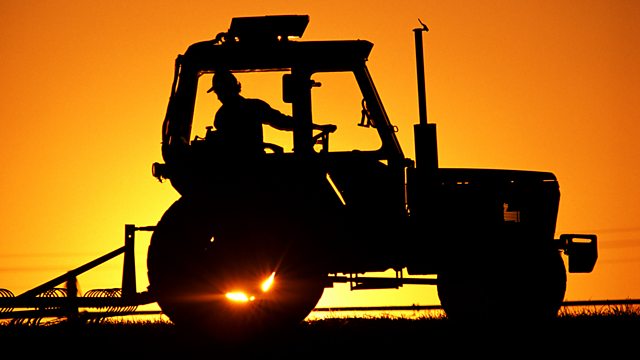
Import quotas to the UK, 100th birthday of the Co-operative Party, Deer & dogs and oilseed rape
A new preliminary trade agreement between the EU and UK is signed - but the agreement meets with opposition from the US, NZ, and other major international trade partners.
A significant agreement has been signed between the EU and the UK on post-Brexit import quotas - these are the international agreements which decide how much of a product can come into Europe before high tariffs are put on.
The UK and EU have made a preliminary trade agreement to split the current amounts based on actual imports over the past few years. So, for example, in the case of NZ sheepmeat based on trade volumes in 2014-16 then 48% would go to the UK, and 52% would go to Europe. The overall amount allowed into both markets at no or low tariff doesn't increase.
However, this this has been rejected by international trade partners - the USA is leading a coalition of countries demanding increased access to British and European mamarkets post Brexit as they say they will no longer be able to move goods freely between the UK and the Continent. Abi Kay, Chief Reporter at the Farmer's Guardian, tells us more about the agreement.
All this week we've been looking at deer, and today we're looking at the issue of deer worrying by loose dogs. Bradgate Park in Leicestershire has been an enclosed deer park since the thirteenth century - though now its only a twenty minute drive from the centre of Leicester. The venison from the 800 acre park is an important source of money - but for the last eighty nine years it has also been a country park and popular dog walking spot and the relationship between the public, their dogs and the deer reached crisis point a couple of years ago. Ben Jackson reports.
New figures show the UK's oilseed rape yields are up, despite a ban on the neonicitinoid pesticides which some farmers say are vital for successful growth. Provisional figures from DEFRA show that although just under 3% less area was planted with the crop, high yields - on average 3.9 tonnes per hectare mean an 26% increase on last year. Neonicitinoids are chemicals which are put onto seeds, so the resulting plants are toxic to pests, but they've been blamed for problems with bees and banned across Europe. Matt Shardlow from the invertabrates charity Buglife says the figures show that farmers can manage to grow oilseed rape without neonicitinoids, although NFU vice chairman Guy Smith disagrees.
The Co-operative Party is a hundred years old this month and this weekend holds its Centenary Conference in London. Co-ops remain a big part of our agriculture - half of the UK's farmers are members of agricultural co-ops and farmer-controlled businesses have a turnover of nearly 拢6 billion a year . There are about 400 farm co-ops across the country - large and small - and Sybil Ruscoe has been to a 50-acre co-operative farm run by Stroud Community Agriculture in Gloucestershire to find out.
The government's long awaited clean growth plan was has just been launched - the headlines are all about insulating houses and becoming more energy efficient in an attempt to cut emissions in half by 2032 - but the report also mentions 'a new network of forests,' planting woodland on farmland in England, more money for Agri-tech and for restoring peatlands. We hear a response from Dr Jonathan Scurlock at the National Farmers Union.
Presented by Charlotte Smith and produced by Emily Hughes.
Last on
Broadcast
- Fri 13 Oct 2017 05:45大象传媒 Radio 4
Podcast
-
![]()
Farming Today
The latest news about food, farming and the countryside

